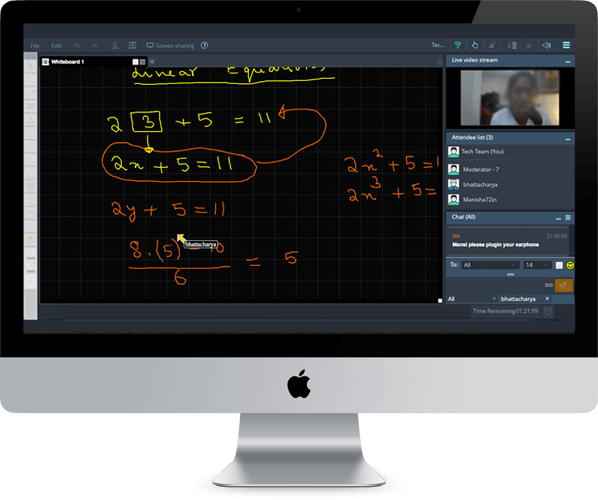How to Prepare for JEE Main in 4 Months?
The National Testing Agency has officially released the dates for the JEE Main 2024 exam. The exam will be held in two sessions, from January 24th to February 1st and from April 1st to April 15th. With the first session of JEE Main exam is just a few months away, it's crucial for students to focus on their preparations. To succeed in the challenging NTA JEE exam, students should adopt a smart and efficient study approach. While JEE may be known for its difficulty, with the right preparation strategy, students can achieve excellent scores.
Get JEE Prep Help Download NRI JEE E-BOOK
How to Prepare for JEE Main in 4 Months - Study Plan
1. Check JEE Syllabus and Exam Pattern
It's crucial to have a solid grasp of the JEE Main syllabus when you're preparing for the exam. Understanding what you need to study is the first step. For the JEE Main Paper 1, you'll be covering Physics, Chemistry, and Mathematics from both class 11 and class 12. The National Testing Agency (NTA) provides the syllabus for each paper, and we've included it below for your reference. Additionally, it's beneficial for students to be aware of the JEE Main syllabus with weightage, as this will give them insights into which topics are more frequently asked compared to others.
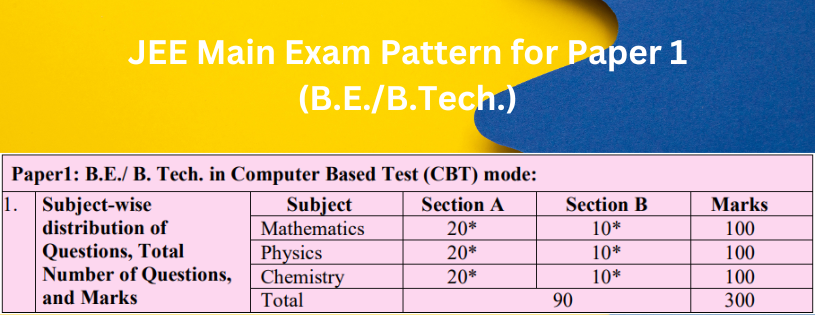
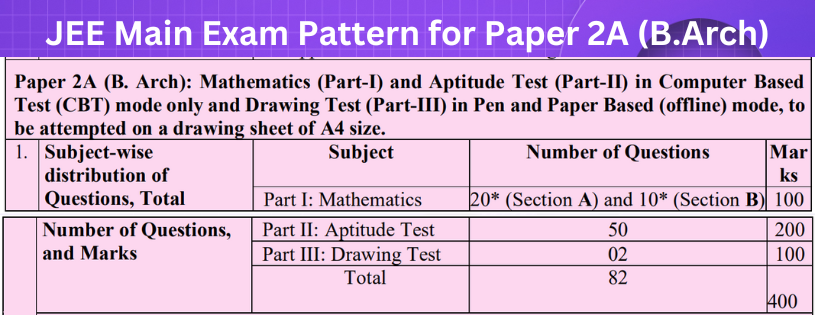
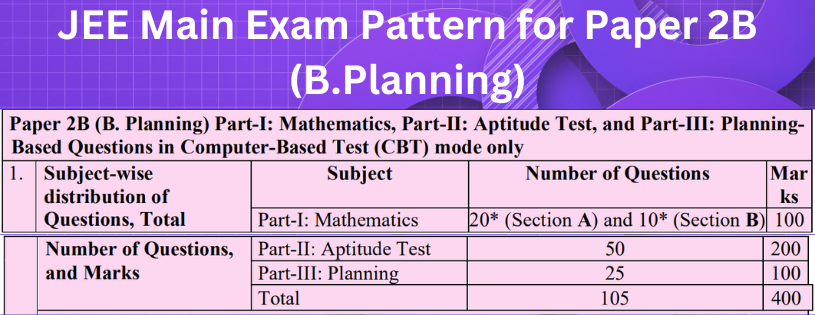
2. Analyze JEE Main Previous Year Question Papers
JEE Main question papers are incredibly valuable for getting ready for exams like JEE Main. By looking at past JEE Main question papers, you can understand how tough the exam is, identify which topics are more important, and spot the critical chapters. Additionally, practicing with previous year JEE Main question papers can help you assess your readiness, recognize your strengths and weaknesses, and enhance your time management skills.
JEE Main Important Chapters:
During the final days leading up to the exam, it's crucial to dedicate your revision efforts to the most significant chapters with substantial weightage. Concentrate your extra focus on these areas to maximize your chances of achieving a high score.
| Subject | Most Important Chapters |
| Physics | Thermodynamics Electrostatics Magnetism Rotational Motion Optics Modern Physics |
| Chemistry | Electrochemistry Coordination compound Ionic equilibrium Thermodynamics & thermochemistry Aldehydes and ketones Alkyl halides and aryl halides Chemical bonding |
| Mathematics | Complex Number Circle Calculus Trigonometric Equation Quadratic Equation Sequence and Series Permutations and combination Vector & 3 D |
JEE Main Chapter Wise Weightage for the Last 10 Years PDF
3. Practice Previous Year Papers
Remember to incorporate last year's exam questions into your study routine. Doing so will provide valuable insights into the types of questions asked and their level of difficulty. Make it a goal to solve a minimum of 10 to 15 previous year's JEE question papers. This practice will not only bolster your preparation but also improve your problem-solving speed. This approach will undoubtedly contribute to your success in the upcoming exams.
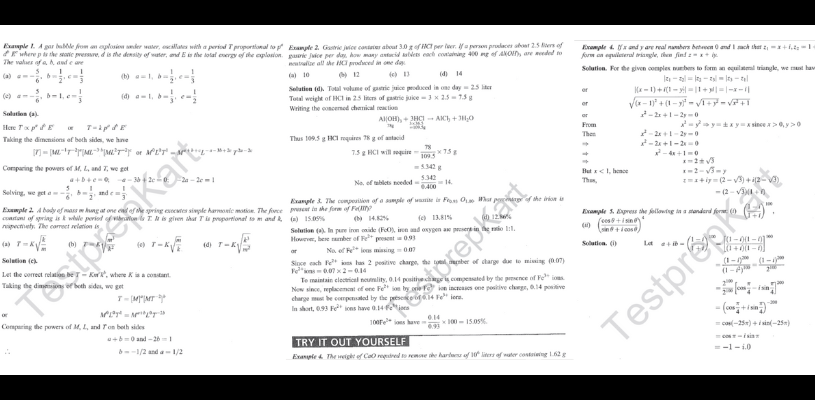
Download JEE Previous Year Paper PDF
4. Time Management
Don't feel like you have to cram all day and night with your studies. It's essential to manage your time wisely to ensure you get a good 6 hours of sleep every night. Neglecting your sleep can harm both your body and mind. A helpful tip is to focus on one subject for at least two consecutive days before moving on to another. Avoid hopping between subjects throughout the day, as this can lower the effectiveness of your studying and disrupt your flow.
| Time of the day | Activity | Study Type | Topics Covered | Total Hours |
| 7:45 – 8:00 | Wake up and freshen up/prepare for study | |||
| 8:00 – 10:30 | Study | New topics (learning) | E.g. The chapter on magnetism | 2.5 hours |
| 10:30 – 11:00 | Breakfast/Newspaper | |||
| 11:00 – 2:00 | Study | Continuing previously done topic | E.g. Strengthening concepts of trigonometry | 5.5 hours |
| 2:00 – 3:30 | Lunch, taking a bath, maybe sleeping for some time or watching T.V | |||
| 3:30 – 6:00 | Study | Test Form | Taking practice tests for 2-3 topics | 8.00 hours |
| 6:00 – 6:45 | A short break, exercise, talk to friends | |||
| 6:45 – 8:45 | Study | Finishing one complete topic | E.g. Attempting problems from a particular chapter/studying concepts | 10.00 hours |
| 8:45 – 9:30 | Break, Dinner | |||
| 9:30 – 12:00 | Study and after that go to sleep | Revise already studied topic/make plans for the next day the last 15 min. | E.g. Revise one chapter and make a record of all the chapters revised till date. | 12.00 hours |
5. Don't Overlook the Importance of NCERT in Your Learning Journey
Begin your preparation by thoroughly studying the NCERT textbooks. These textbooks provide a strong foundation and help you grasp fundamental concepts. It's a smart approach to kickstart your JEE exam preparation with the NCERT books. You'll find that many JEE questions are essentially an elaboration of what you've learned in these NCERT textbooks.
6. Online Learning
Many students preparing for the JEE Main exam often explore various websites offering online preparation for JEE Main, study resources and materials online. If you're gearing up for the JEE exam, Testprepkart is your ideal choice for top-notch preparation. For NRI students seeking quality classes, Testprepkart stands as the premier option with specialized offerings.
